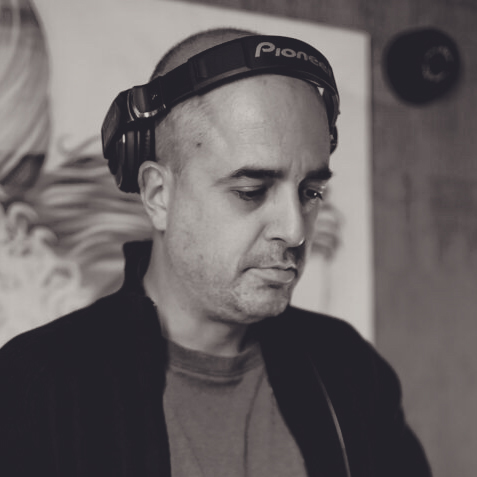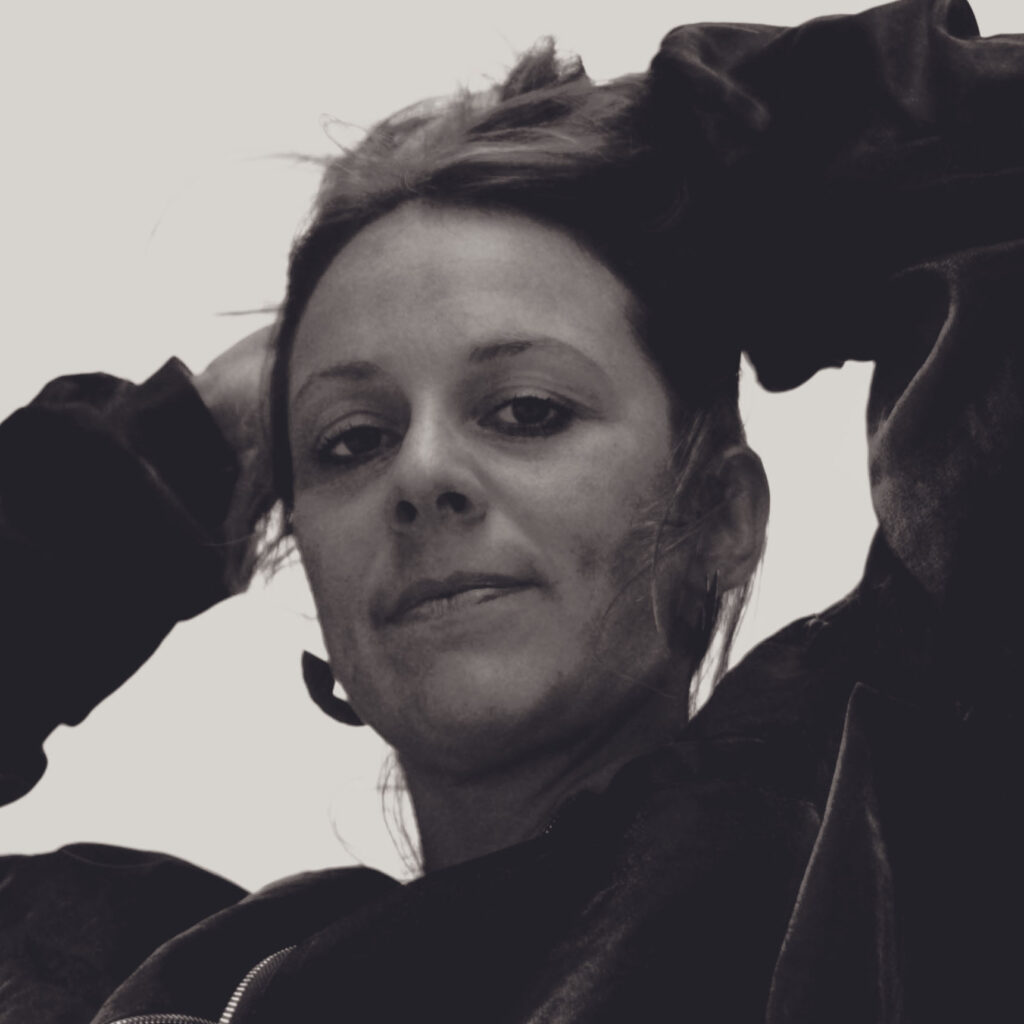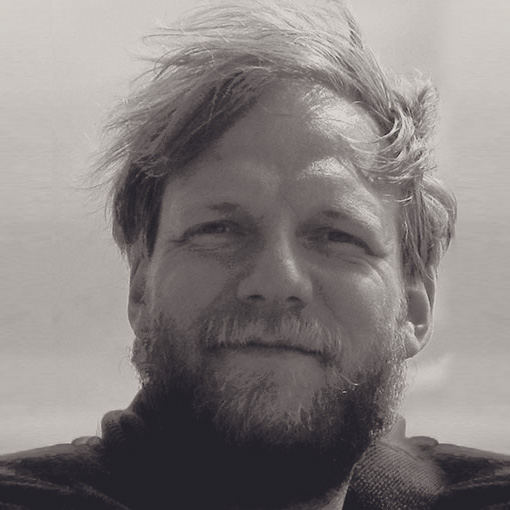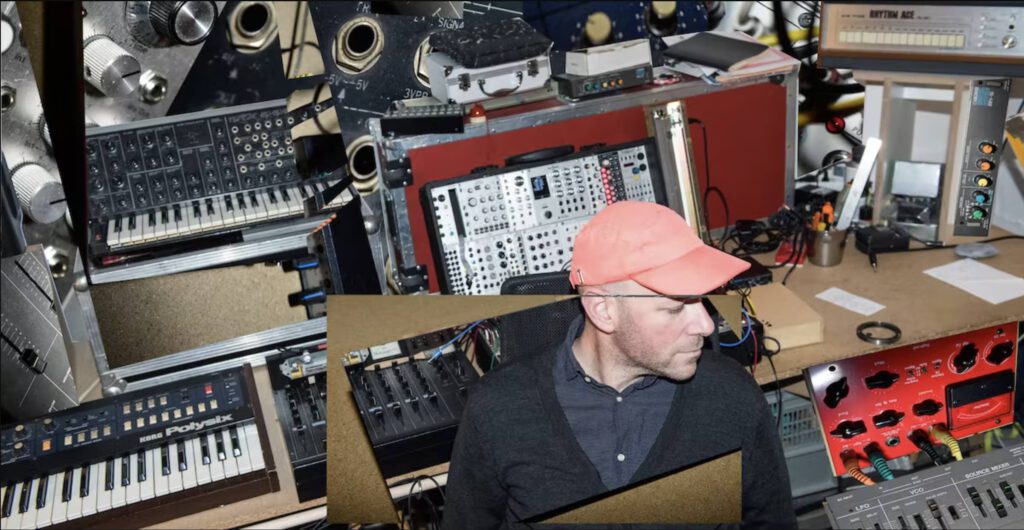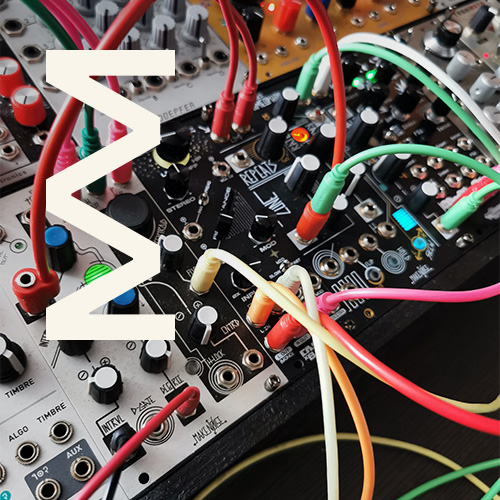
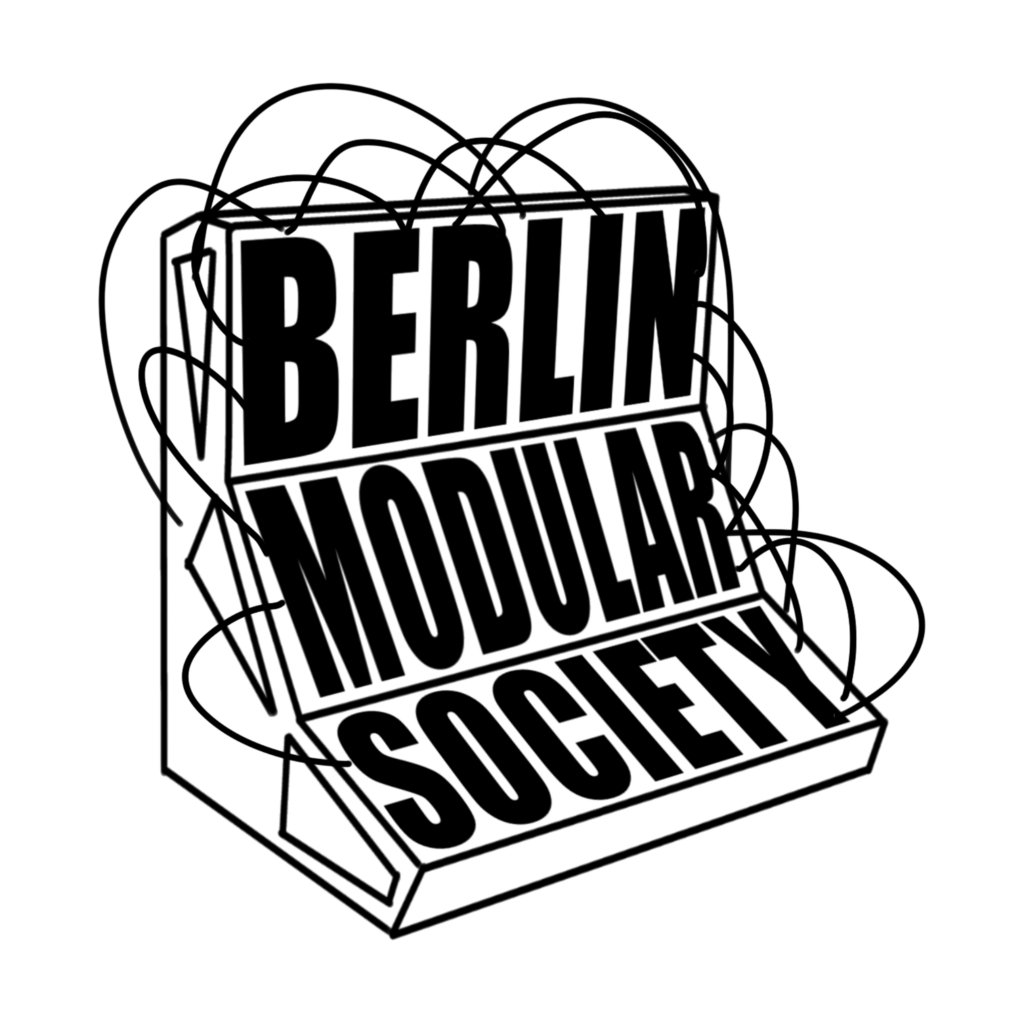
Performing with Modular Synths and Circuitry Building
Module 3, Diploma Course
November 15th, 2022 – January 29th, 2023
over 16 three-hour seminar/workshops
over 16 three-hour seminar/workshops
Cooperation: Berlin Modular Society
Berlin Modular Society – free show on November 18th, ticket discount to all further Berlin Modular Society events during the course, backstage workshop discussing professional club night set-up on a further Berlin Modular Society event. Possible appearance opportunity (conditional)
Work with guest artists Jacqnoise, Jan Hennig aka Kabuki, Eliad Wagner, Steve Williams aka Drusnoise, Simon Berz and Jess Kert
In this hands-on course the participants learn fundamental theory and approaches to modular synthesis while also learning the basics of electronics for building circuitry and synth modules. New ways integrating diverse configurations of gear including modular synths will be introduced. Assignments help the participants learn strategies for better achieving their artistic goals and structuring work. In the last two weeks of the course, approaches to composition, improvisation and performance with modular synthesis and built interfaces will culminate in performances at the Acud Club Room and a back stage field trip to club Fitzroy with Berlin Modular Society
In the final phase participants may opt to participate in three evenings of performances together with course leaders and guests at the Acud Club. The cooperation with Berlin Modular Society also provides a channel through which performance opportunities for eager participants may arise.
Lecturers: Stephane Lefrancois, Katharina Bevand and Georg Werner
Guest Lecturers:
Jacqnoise
Jan Hennig aka Kabuki
Eliad Wagner
Steve Williams aka Drusnoise
Simon Berz and
Jessica Kert
Modular synthesis connects many realms of electronic music and sound art. Intelligently integrating other interfaces and gear with modular synths can open many new creative avenues. In this course, students will learn about synthesis, especially as applied to a modular ecosystem, in order to accurately assess their needs and desires, to build a system which represents their “ideal instrument”.
The students will also learn about the basics of electricity, electronics and they will gain an understanding of the foundations of electroacoustics, i.e., how we can use electric circuits to produce and sense sounds. Furthermore we will explore how the most common modular synth system (Eurorack) works and how modules are connected. On the basis of this knowledge there will be a hands-on session where the participants learn to solder while assembling a simple DIY module from a kit (parts cost 15 Euro).
A fundamental knowledge of how electronics and building one’s own basic interfaces work are key to the full creative potential of electronic sound.
Participants: Max 16
Fee: 590€ / Course
120€ off when you get a friend to sign up
Material, circuitry building costs extra (ca 15 – 50€)
Recommended prerequisite for the course:
Best is if participants already have a modular or semi-modular synthesis system of their own at the start of the course – please contact us for questions or a free consultation on obtaining one.
However, even without hardware, the module can be completed while only using the softwares VCV Rack and Modulargrid. They will be covered thoroughly in the classes and provide a solid foundation upon which to build a system. In between, references to readings in course texts and viewing of key instructional videos will compliment the seminars. With VCV Rack, Modulargrid, the course, and videos, beginning students will be more than ready to approach the modular world with complete confidence, even if they have never bought a modular synthesis system before.
Classes and Workshop Schedule (exact days TBA but course times are presently Mondays and Thursdays from 2-5pm with additional days scheduled for guest artist workshops )
Monday 14th, 2-5pm
Class 1 (SL, KB and GW) Introduction to VCV rack, basic building blocks, modulation, sequencing
Introduction to VCV Rack
brief overview of the different modules
patching assignments
Basic building blocks
oscillator (VCO) (sine, triangle, sawtooth, square, PWM)
filter (VCF)
amplifier (VCA)
low pass gate
wave folder / wave shaper
wavetable oscillator
Modulation
envelope (AD, ADSR, looping envelope)
low frequency oscillator (LFO)
modulation range, attenuverter
Sequencing
clocking, clock distribution and division
reset
trigger sequencer
CV sequencer
alternate ways of sequencing (LFO, random source, sample & hold)
Thursday 17th, 2-5pm
Class 2 (SL) Synthesis types, essential patching examples
Synthesis types
subtractive (east coast)
additive (west coast)
frequency modulation (FM)
ring modulation
granular
Essential patching examples
traditional subtractive voice
simple FM patch
simple 1 – voice sequencing
modulating the modulator
krell patch
Class 3 (KB) Modular Sonic Arts I: Sonic artifacts and sustained tones.
Experimental music exploration with modular synths: artistic approach for live performance and installations.
A history of hearing and new music styles with electronic instruments. Machines changed our hearing.
Drone music: Practices of listening, time questions and perception of time.
Atmospheres, noise, glitches and feedback. Manipulating time: granular synthesis and samplers..
Introduction to female pioneers in electronic music: listening sesssion I – Eliane Radigue, Pauline Oliveros.
Assignment: watch documentary Sisters with Transistors.
Class 4 (KB) Modular Sonic Arts II: Spatial explorations / Extending the modular setup with external inputs for performance or installations.
Hearing space, sound and psychoacoustics. Spaces for installations and performances, effects and quadraphonic explorations. Otoacoustics.
Spatial composition with modular setups in performances or for installations.
Creative extension of the modular setup: external sound sources
Generative approaches for composing and modulation with random generators, sequencers and lfos.
Female pioneers in electronic music: listening sesssion II – Maryane Amacher etc.
Guest Workshop I
Jacqnoise: DIY Modular building
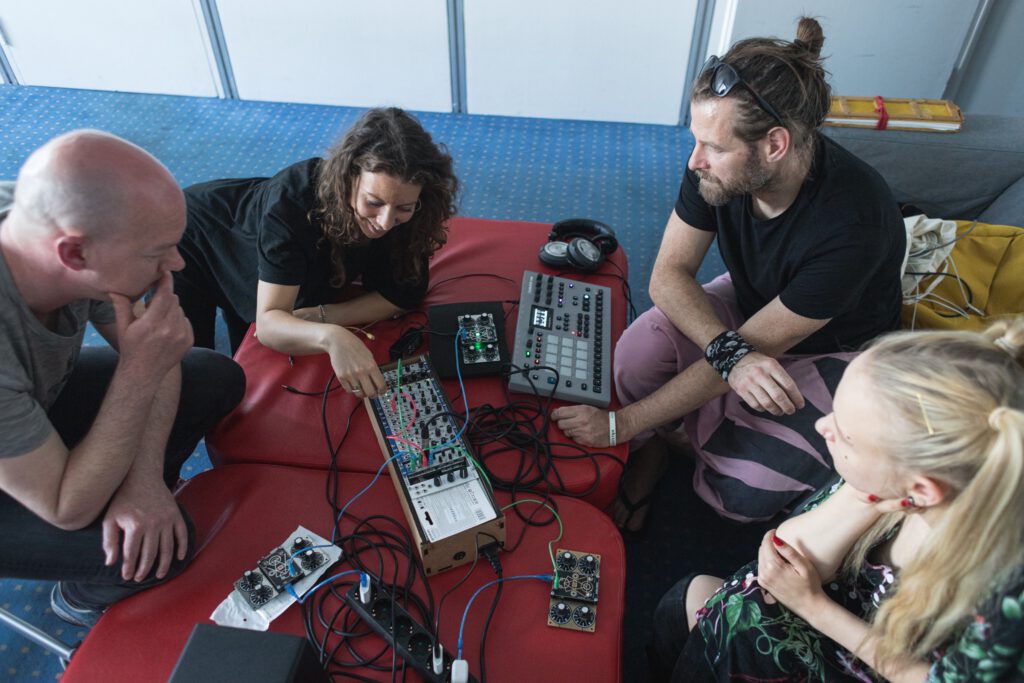
During live performances JacqNoise synchronizes with her surroundings. She finds her main source of inspiration in cultural cross-pollination. In the past years, JacqNoise has collaborated with musicians from all over the world. This is leading her curiosity to experiment and adapt new methodologies.
Lately, JacqNoise has pioneered hardware interfaces that support algorithms and are based on chaos in order to develop noises and specify sounds.
Class 7 (GW) Building your own module
Introduction to tools
Introduction to soldering
Begin building the module from the recommended kit (parts cost 15 Euro extra)
Class 8 (GW) Continue building and testing the module
Mechanical construction
Checking for errors
Connection to the Eurorack
Testing and having fun with the module
Class 9 (SL) sound design patching
Sound design patching
kick drum patch
snare drum patch
hi hat patch
bass line patch
melodic patch
drone patch
feedback patching
self patching
Tuning considerations and techniques
Micro tuning, just intonation, scales and quantizers
listening session III
Guest Workshop II
Jan Hennig aka Kabuki: Modular Harmony
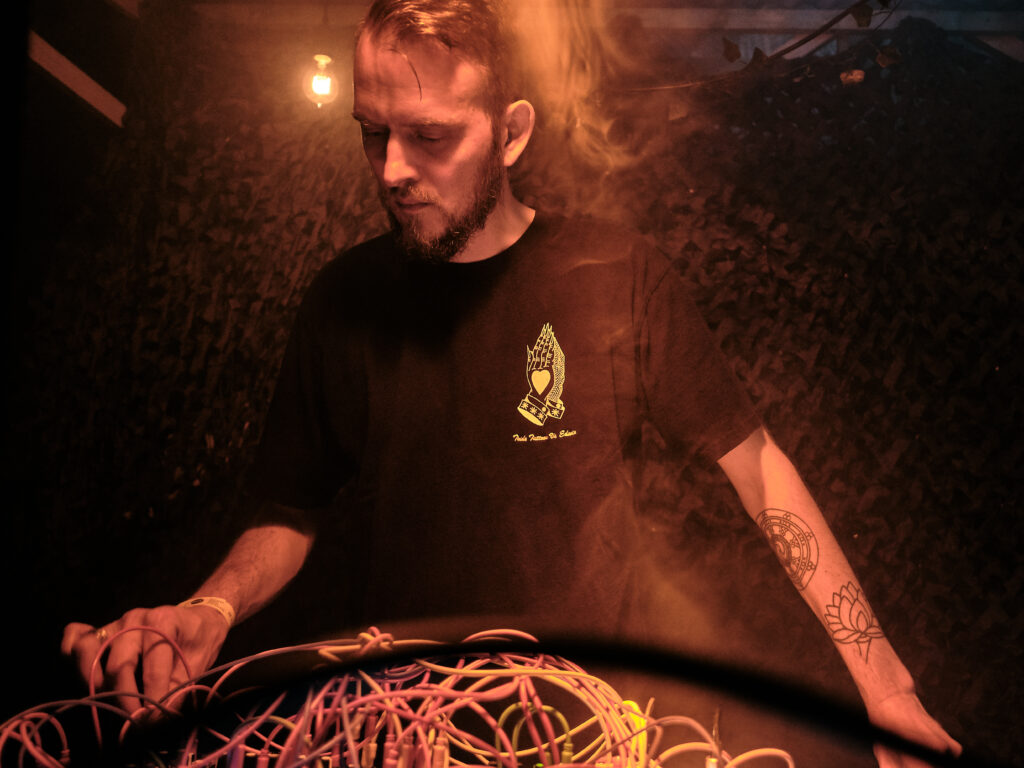
Das Herz von Kabuki schlägt für so scheinbar unterschiedliche musikalischen Genres wie Jungle, Jan oder Ambient. Seit über 20 Jahren decken seine Produktionen das komplette Spektrum der Beat-Wissenschaft ab, immer auf der Suche nach dem besonderen Gefühl.
Von 1996 – 2021 veröffentlichte er über 200 Einzeltitel als Singles oder auf Compilations veröffentlicht. Er produzierte Remixe für Künstler wie Ennio Morricone, Tinashe, Hot 8 Brass Band und viele mehr.
Seit 2016 lehr er mit dem Schwerpunkt Klangsynthese am Abbey Road Institute in Frankfurt am Main
2018 Studium am California Institute of the Arts (Sound Synthesis Using Reaktor)und von 2019 bis heute Studium an der Stanford University (Programming Max: Structuring Interactive Software for Digital Arts)
Simon Berz: DIY Instruments, modular and improvisation
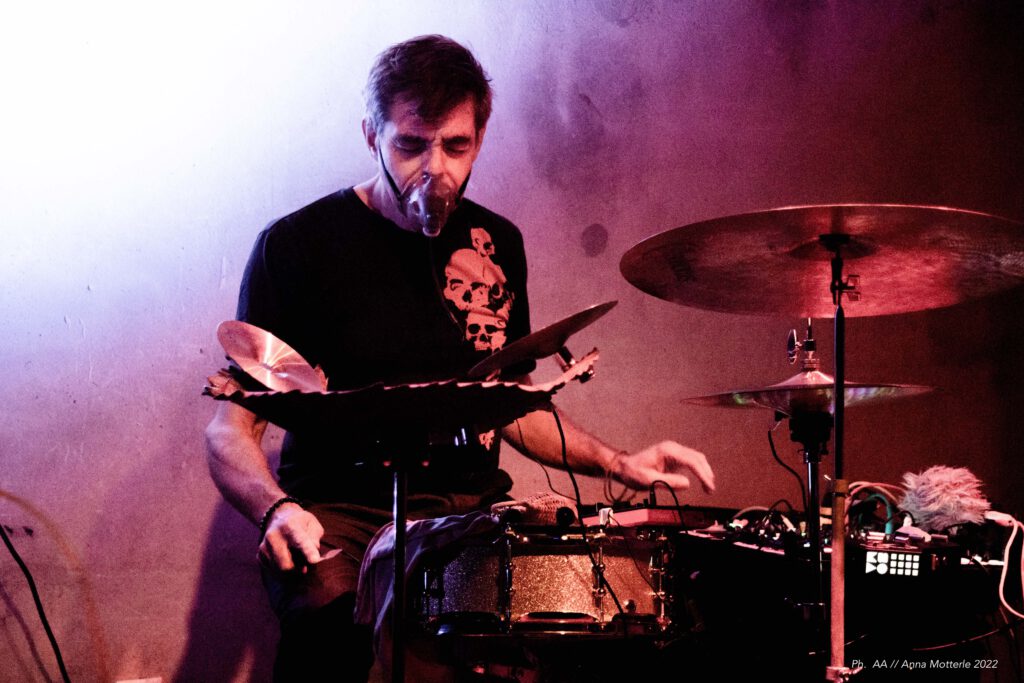
Basierend auf elektroakustischen Gerätschaften (D.I.Y. Instrumente, Effekete, Mischpult, Modularsystem) zeigt Simon Berz umfangreiche und kreative Wege der Klangmanipulation in der Improvisation.
Der Workshop zeigt Möglichkeiten der mikroskopischen Klangforschung mittels Körperschallmikrophone. Er lässt die Teilnehmer erfahren, wie einfachste Klangereignisse in monumentale Klangwände transportiert werden und neue Improvisationsideen erschafft.
Class 10 (SL) Designing a system, performing with a system
Designing a system
power considerations
size considerations
which modules to buy
introduction to Modular Grid
design a system in Modular Grid
Combining software with modular synthesis for performance
MIDI and routing
channels and mixing
Performing with a system
design choices
achieving a polished sound from a modular setup
performing tips and tricks
writing tips and tricks (randomizing)
Modular video
introduction to LZX Visual Cortex and integrating it with audio modules
listening sesssion IV
Guest Workshop III
Eliad Wagner: Serge modular sythesizers, patch programmability and mild cybernetics
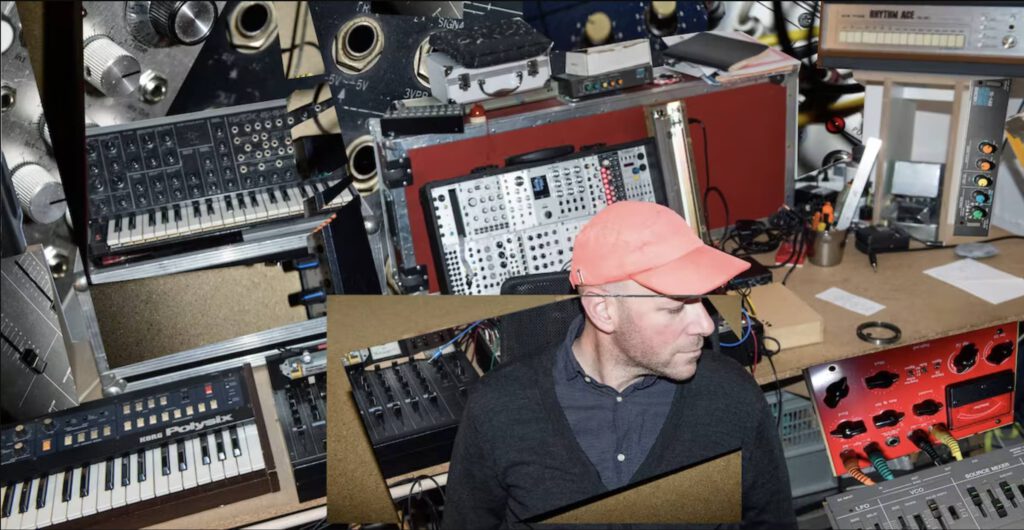
Eliad Wagner is a composer, performer, sound artist and educator. He is a classically trained musician, holding academic degrees in physics and music. In 2012 Wagner relocated to Berlin, where he quickly became an active member of the city’s experimental improvised music scene as a performer of electronic music (playing the modular synthesizer) as well as composing for ensembles and installations. Since 2015, He is the head of the Electronic Music Production and Performance degree programme at the Catalyst Institute for Creative Arts and Technology in Berlin.
His music has been performed/ published/ presented by Computer Music Journal (MIT Press), Guggenheim New York, Q-O2, Steim, HKW Berlin, Worm Rotterdam, Ensemble Phoenix Basel, TU Berlin, UDK Berlin, Aarhus academy of music amongst others.
Steve Williams aka Drusnoise: Live Performance Workshop
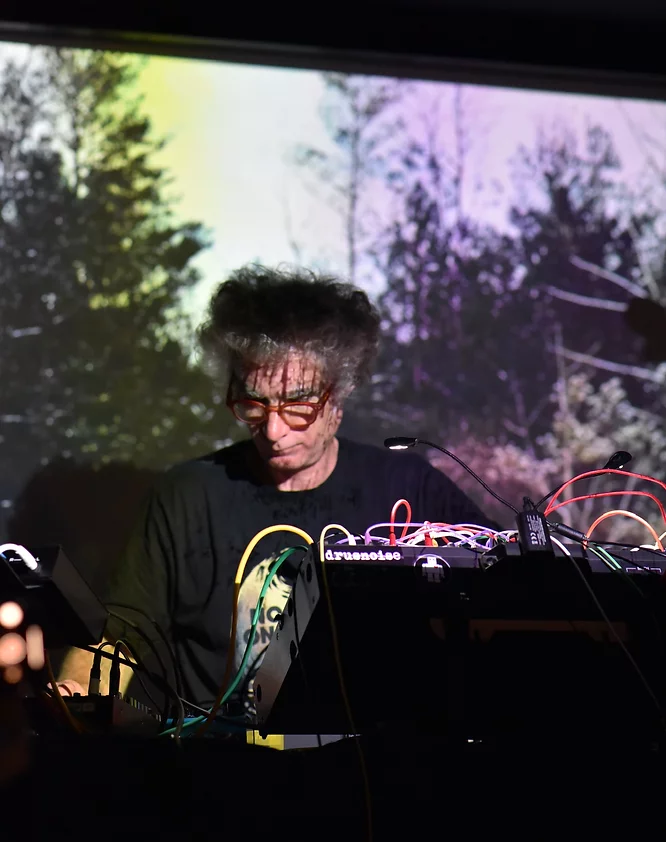
This workshop will help you learn how to make the most of your modular synths in a live setting. We will cover topics like how to build a live set that works for the space and audience, concepts to keep in mind when performing, engaging with the crowd, and balancing planning and improvisation. We will also dive into more practical questions like choosing gear, audio/MIDI routing, integrating modular synths with other gear, mixing for live performance, packing, setup, and soundcheck tips.
Drusnoise is a live, electronic music producer, sound artist and co-founder of the Berlin Modular Society hosting bi-month live electronic events in Berlin. Originally from Canada, his roots in techno lie in the 90s rave scenes of Toronto, Vancouver and London before reaching to the German capital where he currently resides. drusnoise integrates analog modular synthesizers with digital FX and organic samples to create a style that flows from lush ambient tones to gritty techno, in addition to a few curveballs along the way. Over the past years, drusnoise has performed live techno and experimental sets in clubs across Berlin, Prague, Amsterdam. Known in the outside world as Dr. Steve Williams, his academic work includes conducting and publishing research on sustainable energy transition in Canada, Germany, and Sweden. Keen to merge themes of sustainability with dance music and sound art in today’s eco-challenging climate, drusnoise builds live sets from a plethora of natural sources incorporating field recordings, sonified climate change data, and feedback loops.
Class 11 (KB, SL and GW)
Further software/hardware combinations
Managing workflow
Creative strategies
Develop a piece in groups
Improvisation and performance techniques
patching on the fly
live recording techniques
Notation in electronic musicFemale pioneers in electronic music listening session V
Class 12 (KB, SL and GW)
Finalize and rehearse the piece in groups
review work and record extra sections
Write texts for the piece
Project week: Performances / Collaboration with guest artists
Participant Performances alongside guests:
Wed/Thur/Fri/Sat
January 25th – 28th
Acud Club
and additional venue TBA (in planning)
Course Texts
Handmade Electronic Music, Nicolas Collins https://www.handmadeelectronicmusic.com/index.htm
Circuit Bending: Build Your Own Alien Instruments, Reed Ghazala
Links:
https://www.modulargrid.net
https://syntherjack.net
https://schneidersladen.de/
Course Videos
There are numerous further inspiring and insightful channels that can be suggested. Some fundamental ones are:
https://www.youtube.com/c/DivKidVideo
https://www.youtube.com/c/Moltenmusictechnology
https://www.youtube.com/c/mylarmelodies

